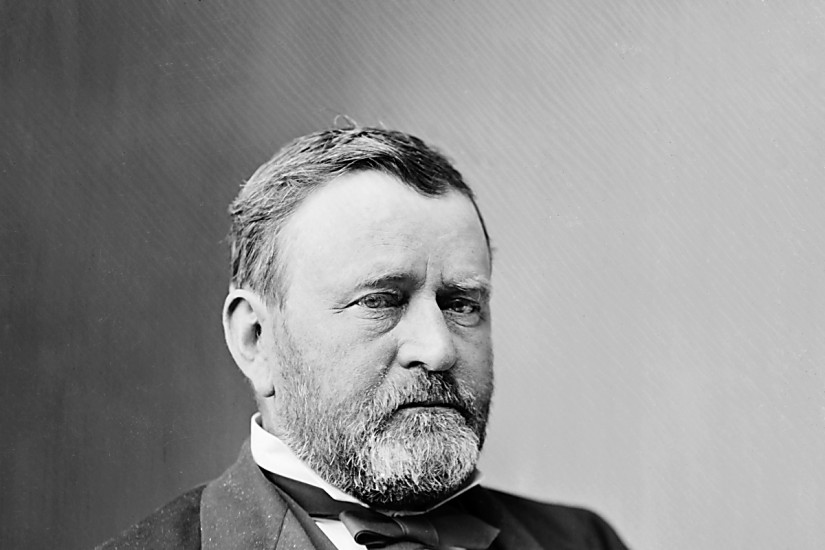As president, Grant did his best with Reconstruction; he suppressed the Ku Klux Klan and encouraged freedmen’s rights and promoted their full citizenship. As a champion of black rights, Grant was much admired by Frederick Douglass and others, and bitterly denounced by whites who organized the Jim Crow resistance that restored so much of the totalitarian status quo ante. After 150 years, the country is still sorting out the interrupted business of Reconstruction and the terms and conditions applying to the citizenship of black people. We live among the aftershocks, Charleston and Charlottesville and Black Lives Matter and Ferguson and the rest.
Chernow creates an interesting effect, working in a kind of fourth dimension: The reader’s mind keeps jumping from Grant’s 19th century to Trump’s 21st, making uneasy connections. It’s as if Grant’s story might be an allegory, a worst-case premonition, an origin myth, and a flash of déjà vu. Charlottesville and the fight about Confederate monuments have agitated old hatreds, so that just now the Civil War and its aftermath, Reconstruction and the Gilded Age and the reversion of the conquered South to the KKK and other Confederate ways, cast an odd shadow.
Chernow never mentions our current troubles. But the connection (as with Chernow’s Hamilton) is there, in the corner of the eye, as if the divisive forces that brought on the Civil War and called forth Ulysses Grant were stirring again in the American mind, as if fanatics on either side half-hoped to repeat the experience. I remember the way that, in the 1990s, Slobodan Milosevic went about stirring up violent nostalgia for the old dream of a Greater Serbia; it was a satanic little business, and many people died. Or maybe it is merely that some Americans, feeling like strangers in a country changing much too fast, are apt to search for themselves in a vivid narrative that they understood long ago. There is release from confusion, and there is perverse pleasure, in the fantasy of a new civil war.
These days, in any case, people do not quite dismiss possibilities that would have seemed absurd a year or two ago. Nehru said that “the Americans are the most hysterical people in the world, with the possible exception of the Bengalis.” A funny crack. But one reflects that India has nuclear weapons, and so does Pakistan, and so do others, including Putin and Kim Jong-un; the Americans have Donald Trump, who is the Duke of Bilgewater and the world’s leading impresario of hysteria.
